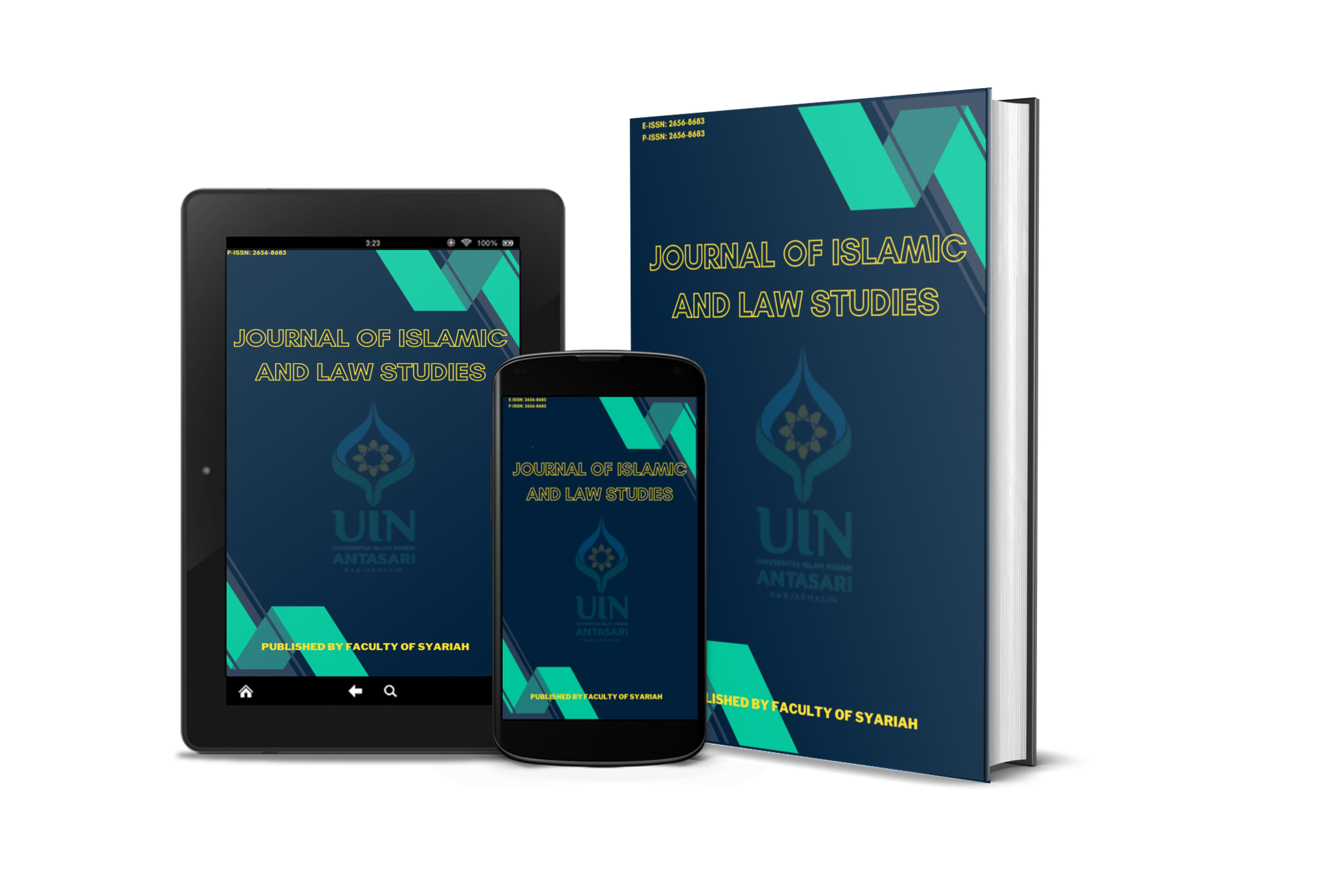Pendapat Hakim Pengadilan Agama Barabai Terhadap Efektivitas Mediasi Secara Elektronik
DOI:
https://doi.org/10.18592/jils.v7i1.10212Keywords:
Hakim, Barabai, Mediasi ElektronikAbstract
Abstract: This research was motivated by the presence of electronic mediation which was carried out at the Barabai Religious Court. The purpose of this study was to find out the opinion of the judges of the Barabai Religious Court on the effectiveness of electronic mediation in the Class 1B Barabai Religious Court. by collecting data from the field. The approach method in this case is the qualitative method. The data obtained are in the form of informant identities, judge opinions and the impact of their use in electronic mediation with data collection techniques by interviews and documentaries. The data was processed and compiled and then analyzed descriptively-qualitatively. The results of research conducted at the Barabai Religious Court, that is the implementation of electronic mediation is carried out through an application that has been approved between the parties, and attended by the mediator judge. According to the Barabai Religious Court judge, electronic mediation was quite effective. Keywords: Judge, Pengadilan Agama Barabai, Electronic Mediation. Abstrak: Penelitian ini dilatarbelakangi dengan adanya mediasi elektronik yang dilaksanakan di Pengadilan Agama Barabai. Tujuan penelitian ini untuk mengetahui pendapat hakim Pengadilan Agama Barabai terhadap efektivitas mediasi secara elektronik di Pengadilan Agama Kelas 1B Barabai.Pada penelitian ini penulis menggunakan jenis penelitian hukum sosiologis atau hukum empiris, yaitu berupa penelitian lapangan (field research) yaitu suatu penelitian yang dilakukan secara sistematis dengan mengambil data yang terdapat di lapangan. Metode pendekatan dalam hal ini ialah dengan metode kualitatif. Data yang diperoleh berupa identitas informan,pendapat hakim serta dampak dari penggunaannya pada mediasi elektronik dengan teknik pengumpulan data dengan wawancara dan dokumenter. Data diolah dan disusun lalu dianalisis secara deskriptif-kualitatif. Hasil penelitian yang dilakukan pada Pengadilan Agama Barabai, bahwa yaitu pelaksanaan mediasi secara elektronik dilakukan melalui aplikasi yang sudah disetujui antar para pihak, dan dihadiri oleh hakim mediator. Menurut hakim Pengadilan Agama Barabai, mediasi secara elektronik sudah cukup efektif.References
Arikunto, Suharismi. Dasar-dasar Research. Bandung: Tarsuto, 1995.
Asshiddiqqie, Jimly. Pokok-pokok Hukum Tata Negara Pasca Reformasi. Jakarta: PT. Buana Ilmu Populer, 2006.
Broto, Al-Wisnu. Hakim dan Peradilan di Indonesia dalam Beberapa Aspek Kajian. Yogyakarta: Penerbitan Universitas Atma Jaya Yogyakarta, 1997.
Darmabrata, Wahjono & Ahlan Sjarif Surini. Hukum Perkawinan dan Keluarga di Indonesia. Jakarta: Universitas Indonesia, 2016.
Fauzan. Kamus Hukum & Yurisprudensi. Jakarta: Gramedia, 2018.
Huda, Ni’matul. Hukum Tata Negara Indonesia. Jakarta: PT. Raja Grafindo Persada, 2005.
Latief, Mujahid A. Kebijakan Reformasi Hukum: Suatu Rekomendasi Jilid II. Jakarta: Komisi Hukum Nasional RI, 2007.
Lindsey, Tim & Helen Pausacker. Crime and Punishment in Indonesia. Oxon: Routledge, 2021.
Marks, Stephan P. Human Right: A Brief Introduction. Cambridge: Harvard University, 2016.
Marzuki, Peter Mahmud. Penelitian Hukum Edisi Revisi. Jakarta: Kencana Prenada Media Group, 2013.
Masglow, Abraham Harold. Motivation and Personality. New York: Harper & Row Publisher, 1970.
Downloads
Published
Issue
Section
License
Copyright (c) 2023 Penti Pepriyanti, Masyithah Umar, Anwar Hafidzi, Ahda Fithriani

This work is licensed under a Creative Commons Attribution-NonCommercial 4.0 International License.
Authors who publish with this journal agree to the following terms:
- Authors retain copyright and grant the journal right of first publication with the work simultaneously licensed under a Creative Commons Attribution License that allows others to share the work with an acknowledgement of the work's authorship and initial publication in this journal.
- Authors are able to enter into separate, additional contractual arrangements for the non-exclusive distribution of the journal's published version of the work (e.g., post it to an institutional repository or publish it in a book), with an acknowledgement of its initial publication in this journal.
- Authors are permitted and encouraged to post their work online (e.g., in institutional repositories or on their website) prior to and during the submission process, as it can lead to productive exchanges, as well as earlier and greater citation of published work.




